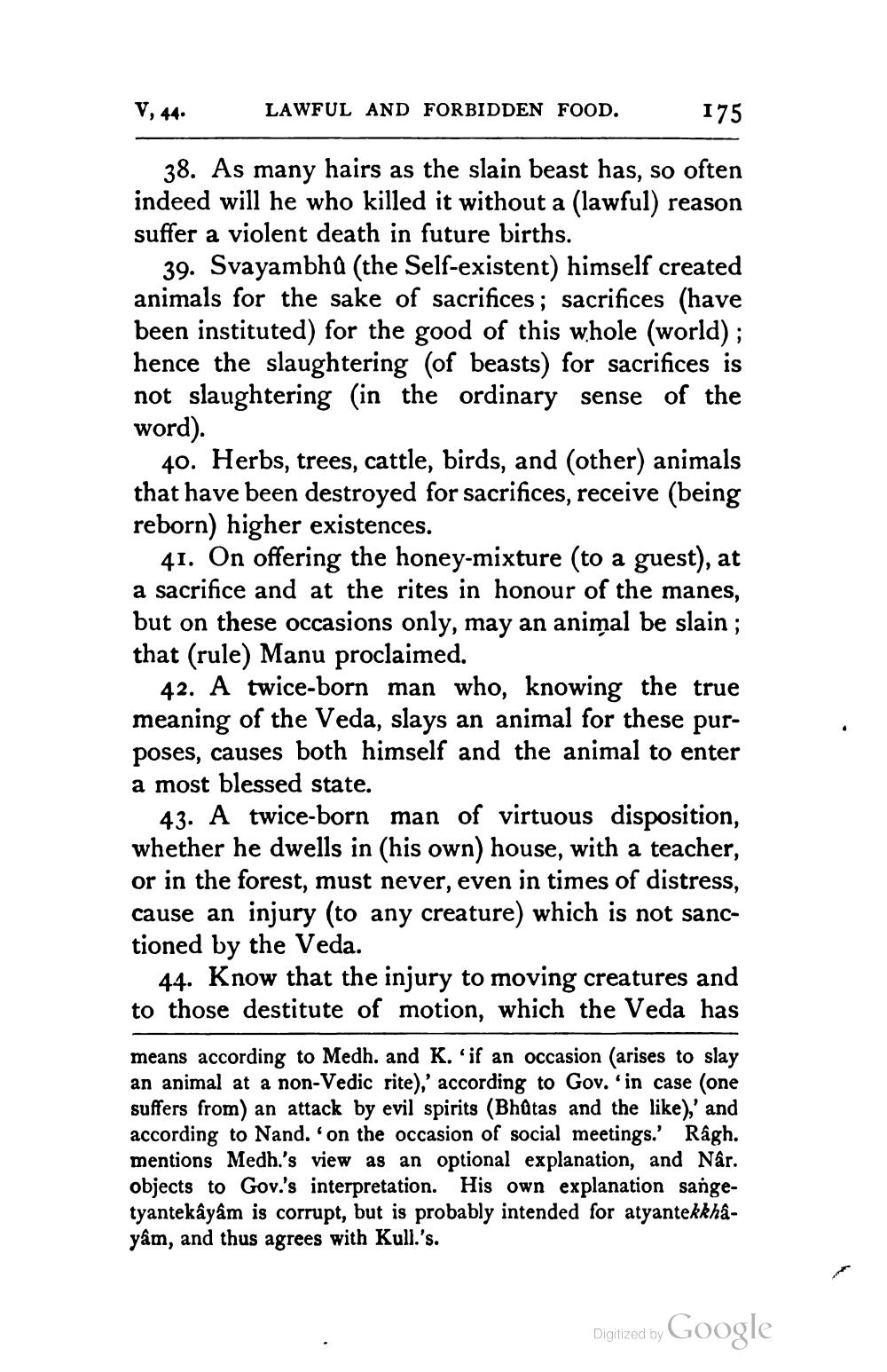________________
V, 44.
LAWFUL AND FORBIDDEN FOOD.
175
38. As many hairs as the slain beast has, so often indeed will he who killed it without a (lawful) reason suffer a violent death in future births.
39. Svayambha (the Self-existent) himself created animals for the sake of sacrifices; sacrifices (have been instituted) for the good of this whole (world); hence the slaughtering (of beasts) for sacrifices is not slaughtering (in the ordinary sense of the word).
40. Herbs, trees, cattle, birds, and (other) animals that have been destroyed for sacrifices, receive (being reborn) higher existences.
41. On offering the honey-mixture (to a guest), at a sacrifice and at the rites in honour of the manes, but on these occasions only, may an animal be slain ; that (rule) Manu proclaimed.
42. A twice-born man who, knowing the true meaning of the Veda, slays an animal for these purposes, causes both himself and the animal to enter a most blessed state.
43. A twice-born man of virtuous disposition, whether he dwells in (his own) house, with a teacher, or in the forest, must never, even in times of distress, cause an injury (to any creature) which is not sanctioned by the Veda.
44. Know that the injury to moving creatures and to those destitute of motion, which the Veda has
means according to Medh. and K. 'if an occasion (arises to slay an animal at a non-Vedic rite),' according to Gov. 'in case (one suffers from) an attack by evil spirits (Bhůtas and the like),' and according to Nand. 'on the occasion of social meetings.' Ragh. mentions Medh.'s view as an optional explanation, and Nar. objects to Gov.'s interpretation. His own explanation sangetyantekâyâm is corrupt, but is probably intended for atyantekkhayâm, and thus agrees with Kull.'s.
Digitized by Google




